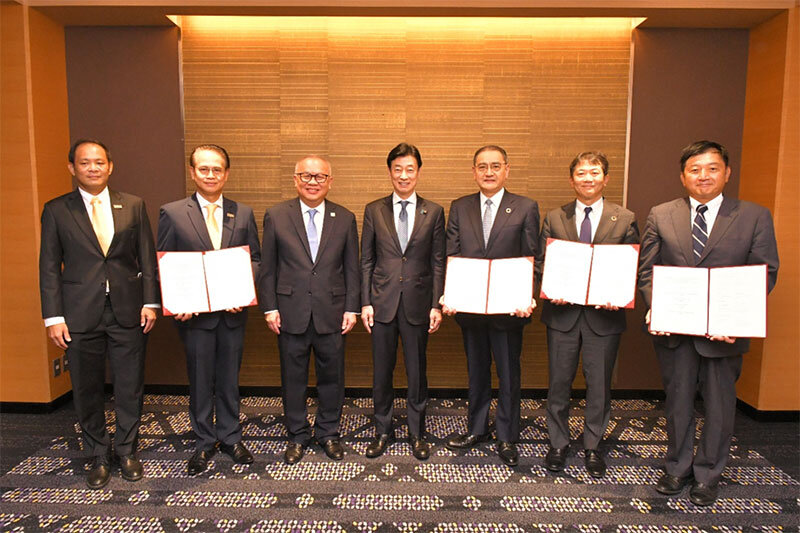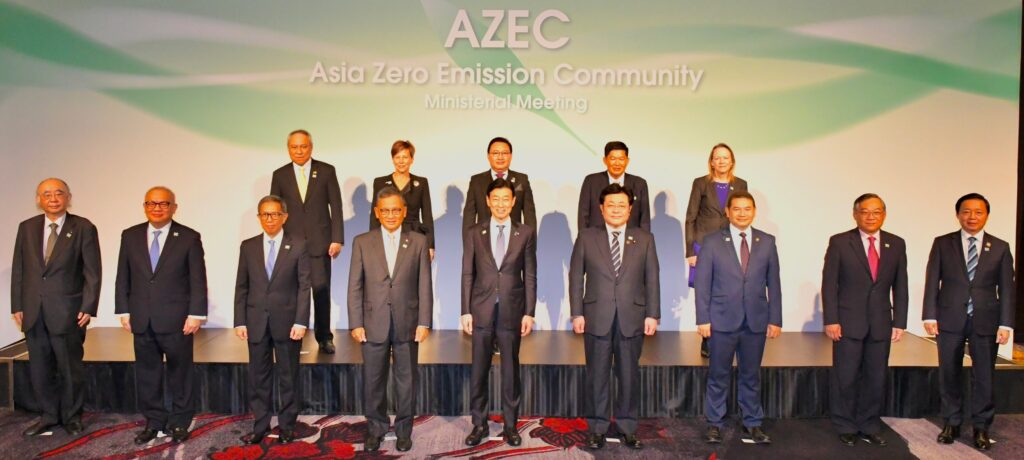Establishing a renewable ammonia supply chain from Thailand
By Julian Atchison on March 09, 2023
Japanese-Thai consortium

Mitsui OSK Lines, Mitsubishi and Chiyoda will work together with EGAT to build a clean hydrogen & ammonia value chain, with production based on renewable energy generation in southern Thailand. The group will cooperate on projects related to the production, storage, transport and utilization of clean hydrogen and ammonia, as well as supplying to domestic and international markets.
EGAT is Thailand’s largest state-owned power generator, and it owns & operates about one-third of the installed electricity generating capacity in the country. Combined cycle gas turbines represent about 50% of EGAT’s generating assets, along with 20% hydropower dams and 20% thermal assets (coal & fuel oil combustion). As part of the MoU, the group will study the feasibility of decarbonising Thailand’s energy sector, presumably via the use of hydrogen & ammonia fuel in power generation. Thailand already has two such initiatives underway: a coal co-firing trial led by Mitsubishi Heavy Industries, and GE/IHI’s agreement to develop 100% ammonia-powered gas turbines (GE-built turbines make up 30% of Thailand’s installed generating capacity).
AZEC: The Asian Zero Emissions Community

The MoU was signed on the sidelines of the first-ever AZEC ministerial in Tokyo. First mooted in November 2022, the Asian Zero Emissions Community was officially launched this week. Australia, Brunei, Cambodia, Indonesia, Japan, the Republic of Laos, Malaysia, the Philippines, Singapore, Thailand, and Vietnam will work together to accelerate the energy transition in the Asian region, based on goals set out in the Paris Agreement. The AZEC approach will be practical and country-specific, with the participants set to share expertise and take joint action utilising decarbonisation solutions including “energy efficiency, renewables, hydrogen, ammonia, energy storage, bioenergy, carbon capture, utilization and storage (CCUS)”.
At the ministerial meeting itself, hydrogen & ammonia dominated the agenda. Japanese officials reported discussions centred on (Japanese language): fuel ammonia with Malaysia, the Philippines and Indonesia, renewable ammonia production with the Republic of Laos, and general cooperation on hydrogen & ammonia with Singapore and Australia.